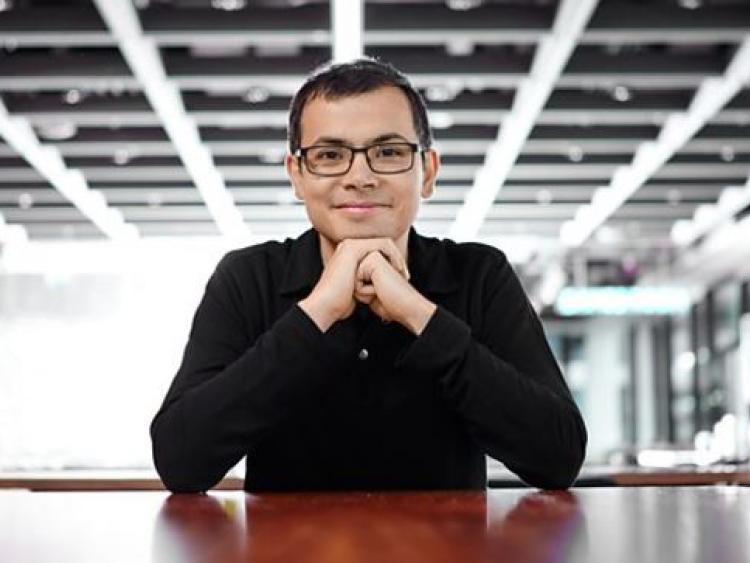
Old Elizabethan Demis Hasabbis, a world-leading artificial intelligence expert, is now using AI to speed up the development of new drugs which may help in the battle against Alzheimer’s disease, he told Kirsty Young when he appeared on the BBC’s Desert Island Discs.
His company, DeepMind, was bought by Google for a reported £400m in 2014 – and Demis said his motivation in selling was to enable the business to step up its work.
“For me, it was nothing to do with the money – in fact, our investors mostly didn’t want to sell even though it was a lot of money – it’s because I was convinced that by joining forces with Google, we could accelerate the success of the mission.” Demis explained that he was able to employ more expert researchers, thanks to Google’s injection of cash.
In March 2016, DeepMind hit the headlines when its programme, AlphaGo, beat a world champion player of the game, Go. DeepMind, of which he is CEO, is now using variants of those algorithms in its medical research into how proteins fold into a 3d structure. The 3d structure determines how the protein is going to act in the body, and faulty folding may be responsible for diseases such as Alzheimer’s. “If you could take an amino acid sequence and just tell straightaway how the 3d structure is going to look just from that, then you would accelerate drug design by five or ten years.”
Demis said the “most exciting breakthrough” in which DeepMind is currently involved is bringing together two two types of AI: deep learning, which uses neural networks to mimic what the brain does, and reinforcement learning, which is about using a model of the world to make decisions. “These two systems together, which is our big innovation, gives you in some sense the rudimentary beginnings of a full intelligence.”
Demis was at QE from 1988–1990. He had a period of home schooling, and paid tribute to his “bohemian” parents, from whom he learned that “you don’t have to be constricted by social norms”. During these early years, Demis played chess and was at one time the world’s second highest-ranked player of his age, but says he had an epiphany at a large chess tournament in Liechtenstein when he realised that all the brainpower in evidence there could be put to better use for the benefit of humanity.
He took his A-levels aged 16 at Christ’s College in Finchley and won a place at Cambridge, but since he was too young to take it up, he began his initial career in computer gaming by working for the British company, Bullfrog Productions, after winning a competition which had a job there as its prize. Arriving the day after his examinations, he was too young to be legally employed, so was paid in cash. He was the lead programmer and co-designer of the highly successful Theme Park game.
When he eventually went to Cambridge, where he took a double first in the Computer Science Tripos at Queens’ College, he partied hard and had “an amazing three years”. He went on to take a PhD in Cognitive Neuroscience where he deliberately chose to study topics where AI had failed so far: memory and imagination.
Demis, who celebrated his fortieth birthday in July 2016, fell in love with computing from an early age, buying a Spectrum ZX with his chess winnings. “I have always felt…that computers can be this kind of magical device that can extend the power of the mind – I think AI is the end point of that.”
Demis, who is himself a father and is married to a scientist involved in Alzheimer’s research, impressed Kirsty Young with his warmth, openness, thoughtfulness and lack of condescension, so she asked him if he had any advice for parents of very clever children. He replied: “I think what I would do is encourage them to explore heavily when they are young and really get a wide range of experiences, so encourage deepness and expertise in things, but not at the expense of everything else. Life is so rich; you should partake in all of it. I think the kind of skills I would teach children today are the ability to learn, rather than a specific thing that you are learning. One of the first things you should learn about…is about yoursel f; how do you work best, what do you want, what are your dreams, what are you excited about?
“It’s important to be very broad in your upbringing so that you are used to understanding different points of view…and learning how to deal with that sort of disagreement in a constructive way.”
The rules of Desert Island Discs allow interviewees to pick one book (besides the Bible and works of Shakespeare) and one luxury item. Demis choose Tolkien’s The Lord of the Rings – “it’s such a beautiful world he created” – and a solar-powered chess computer.
As usual for the programme, he chose eight pieces of music, naming as his favourite, Vangelis’ Tears in Rain, which was part of the soundtrack to the film, Blade Runner. “I could mull over those lines, I think – they are beautiful poetry – for a very long time.”
The other music was: Watermark, by Nicky Ryan, Roma Shane Ryan and Eith Ni-Bhraonain; Justified and Ancient, by Tammy Wynette with The KLF; The Narcotic Suite; Skylined, by The Prodigy; The Garden is Becoming a Robe Room, by the modern classical composer, Michael Nyman; Who Wants to Live Forever, by Queen; Motherboard, by Daft Punk, and First Step by Hans Zimmer.
